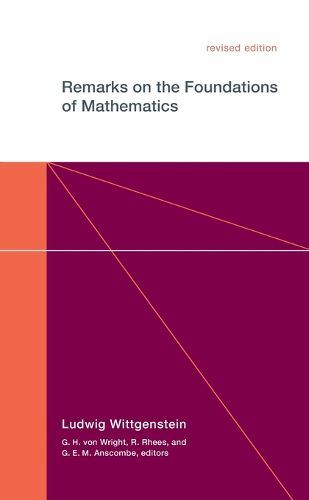Readings Newsletter
Become a Readings Member to make your shopping experience even easier.
Sign in or sign up for free!
You’re not far away from qualifying for FREE standard shipping within Australia
You’ve qualified for FREE standard shipping within Australia
The cart is loading…






Wittgenstein’s work remains, undeniably, now, that of one of those few philosophers who will be read by all future generations.
The Remarks analyzes in depth such topics as logical compulsion (the must ) and mathematical conviction; calculation as experiment; mathematical surprise, discovery, and invention; Russell’s logic, Goedel’s theorem, Cantor’s diagonal procedure, Dedekind’s cuts; the nature of proof and contradiction; and the role of mathematical propositions in the forming of concepts.
Wittgenstein’s later philosophy was much involved with the concept of language-games, of which mathematics was one. It was his feeling that a proper analysis of the use of language would clarify concepts and lead to the solution of (what seem to be) philosophical problems.
Sometimes, Wittgenstein’s expository method is pre-Socratic: a flow of disconnected statements, not unlike Heraclitean fragments, that range from clear aphorisms to cryptic oracles. Elsewhere, there are brief Socratic dialogues with imaginary persons, opponents of equally severe seriousness, representatives of the other half of Wittgenstein strove for total clarity of language as a means of solving philosophical problems, but some of his most meaningful statements here are expressed suggestively, subjectively, poetically.
$9.00 standard shipping within Australia
FREE standard shipping within Australia for orders over $100.00
Express & International shipping calculated at checkout
Stock availability can be subject to change without notice. We recommend calling the shop or contacting our online team to check availability of low stock items. Please see our Shopping Online page for more details.
Wittgenstein’s work remains, undeniably, now, that of one of those few philosophers who will be read by all future generations.
The Remarks analyzes in depth such topics as logical compulsion (the must ) and mathematical conviction; calculation as experiment; mathematical surprise, discovery, and invention; Russell’s logic, Goedel’s theorem, Cantor’s diagonal procedure, Dedekind’s cuts; the nature of proof and contradiction; and the role of mathematical propositions in the forming of concepts.
Wittgenstein’s later philosophy was much involved with the concept of language-games, of which mathematics was one. It was his feeling that a proper analysis of the use of language would clarify concepts and lead to the solution of (what seem to be) philosophical problems.
Sometimes, Wittgenstein’s expository method is pre-Socratic: a flow of disconnected statements, not unlike Heraclitean fragments, that range from clear aphorisms to cryptic oracles. Elsewhere, there are brief Socratic dialogues with imaginary persons, opponents of equally severe seriousness, representatives of the other half of Wittgenstein strove for total clarity of language as a means of solving philosophical problems, but some of his most meaningful statements here are expressed suggestively, subjectively, poetically.